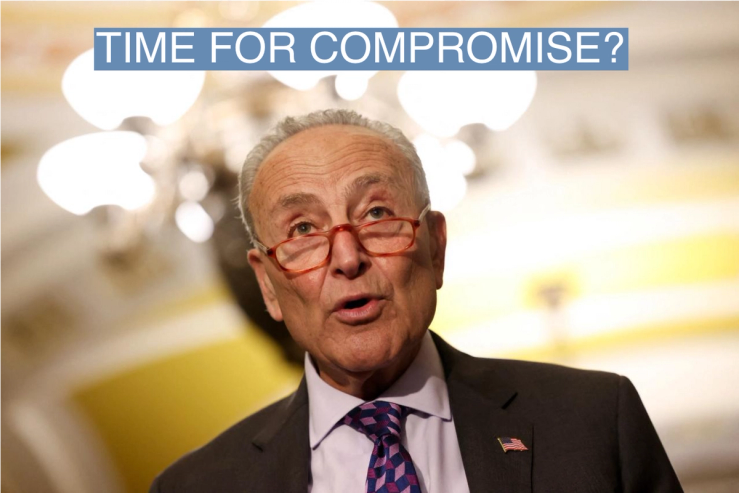The News
It may take a “shotgun wedding” for the Senate to reach a deal on insulin costs this year. That’s according to Sen. John Kennedy, the Louisiana Republican who co-authored one of the two bipartisan bills aimed at capping the price of diabetes meds that are now competing for passage in the Senate.
“We tried to marry those bills,” Kennedy told Semafor. “We haven’t been able to.”
The main sticking point, according to Kennedy, is what to do with the uninsured. His legislation, co-sponsored with Sen. Raphael Warnock, D-Ga. would lower the cost of the drugs to $35 for Americans with and without private insurance (the Inflation Reduction Act already set a cap for Medicare patients). A rival proposal from Sens. Susan Collins, R-Maine and Jeanne Shaheen, D-N.H. would limit costs for those with health coverage.
Kennedy warned talks will stall out unless Majority Leader Chuck Schumer steps in to force a compromise bill that would let them “go pass the damn thing.” Schumer’s take? “We are working as hard as possible to get a bill done,” he said in a statement to Semafor.
In this article:
Know More
In a brief hall interview, Shaheen said the two sides were at odds over the cost of covering the uninsured and that her bill was designed “in a way that we think is going to allow us to get the votes.”
Under the Warnock-Kennedy bill, the Department of Health and Human Services would set up a program giving uninsured people access to cheaper insulin through “qualified entities” like pharmacies.
“Capping the price of insulin, including for the uninsured, will pay for itself,” Kennedy told Semafor, adding he believed it’d help Americans be more productive and healthy enough to be able to work. In Louisiana, more than 14% of the state’s adult population has been diagnosed with diabetes.
Democrats previously attempted to pass a bill capping insulin costs for Americans who rely on private insurance last year, only to see it blocked by Republicans. The renewed bipartisan effort comes after three insulin manufacturers slashed the list price of their insulin to $35 monthly.
While the three firms make up 90% of the insulin market, the caps “don’t apply to all of the insulin products that the three manufacturers make,” Juliette Cubanski, a prescription drug policy expert at the Kaiser Family Foundation, told Semafor.
Joseph’s view
The timetable for passing a bipartisan insulin bill has slipped repeatedly over the past year, which doesn’t instill a significant amount of confidence of imminent legislative action.
In particular, keeping the government’s lights on and passing bipartisan funding bills is likely to drive the Senate’s limited floor time, with everything else taking a backseat to avoiding a shutdown. Senate aides tell me that, if there’s any action, it will take place in October at the earliest as part of a broader health package.
Democrats, though, are eager to talk up their efforts to lower drug prices in the 2024 election, viewing it as a major victory over the deep-pocketed pharmaceutical industry that provides tangible benefits to all-important senior voters. That may help explain why some Republicans are now gravitating toward action on insulin.
Room for Disagreement
During an interview in his office, Warnock offered some optimism about the chances of a bill in the near-term. “We’re all working on the same team here,” Warnock said, of the competing bills. “I think if we center the concerns of the people rather than the politics, we’ll find a way forward.”


